The New Film
2008 | Video, DVcam, VCD | 12 minutes
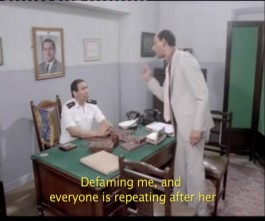
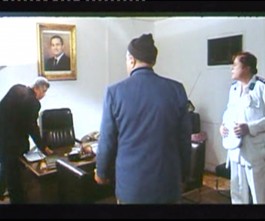
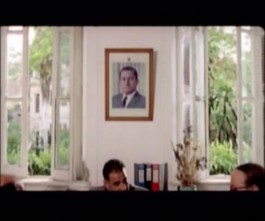
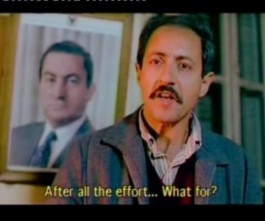
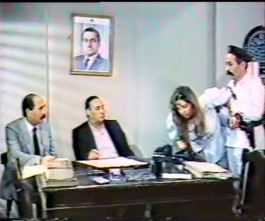
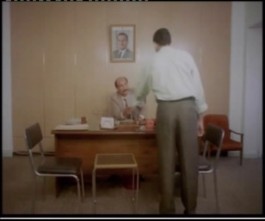
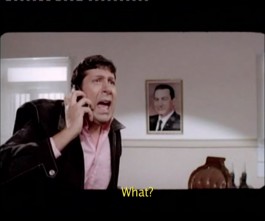
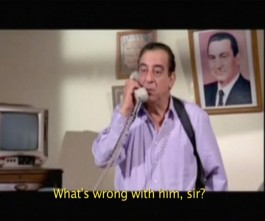
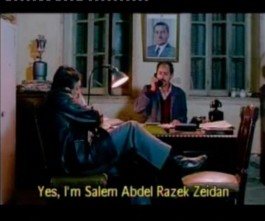
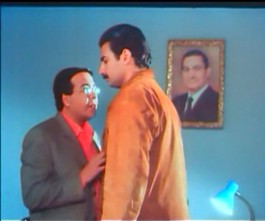
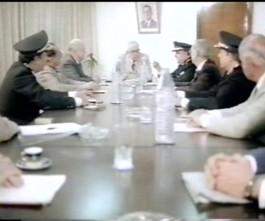
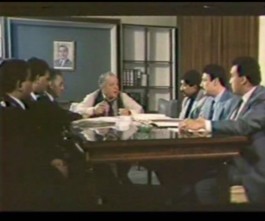
The New Film, Video excerpt
The New Film, Video still
The New Film, Video still
The New Film, Video still
The New Film, Video still
The New Film, Video still
The New Film, Video still
The New Film, Video still
The New Film, Video still
The New Film, Video still
The New Film, Video still
The New Film, Video still
The New Film, Video still
The New Film is Yassin’s tribute to his (post-war Lebanese) generation's enthralment with icons of popular culture, lo-fi technologies and Egypt's faltering film industry. After watching hundreds of low-quality and cheap video compact discs (VCD’s) of feature films produced during Egyptian president Hosni Mubarak's reign (1981-2011), Yassin used found footage sourced from the films to stitch together a 12-minute single channel video.
Ubiquitously sold on the streets of Cairo, VCD’s have become the prime medium for distributing old and new Arabic films, more specifically Egyptian ones - widely watched in the Arab world. The New Film is composed of a string of roughly edited movie scenes set in police stations and government offices, in which (obligatory) portraits of Mubarak hang on the walls. The video also draws out other tropes that characterize these structures of policing and bureaucracy (the police station, the official’s office, the interrogatory room…). For instance, it constructs a sonic strip of insults and abuse that run through innumerable films, uttered directly or over the phone. At other times, it pastes together spatial leitmotifs from these rooms such as desks and long meeting tables. But Mubarak’s portrait is always there, somewhere in the background, suspended over every conversation and decision. However, as film repeatedly exhibits, a portrait hanging on the walls of police stations is not always that of a man in power, but also that of a fugitive or a criminal. A suspect. And so, The New Film changes route, halfway through the film, and becomes a trailer for The Suspect (1981) starring the Egyptian comedian Adel Imam, who, since his debut in the sixties as a sidekick, has achieved cult status. The insert is a playful homage to Imam, the antihero who outsmarts the institution. Moreover, the interruption is a reference to the notorious practice of sandwiching movie trailers within films - popularized in the VCD industry by film producers in order to maximize exposure at the expense of the film's integrity. With a soundtrack that alternates between movie-dialogue staccato and a political shaabi song about American-Egyptian relations, The New Film is a commentary on (inter)national power dynamics and the impact popular cinema has on building collective memory in the Arab world.
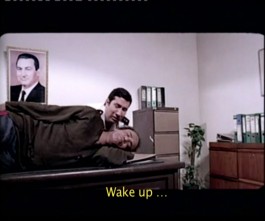
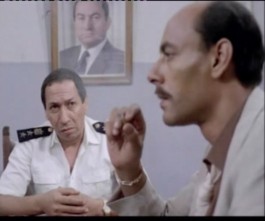
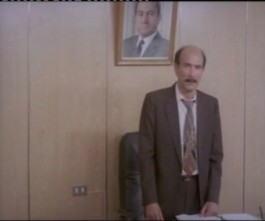
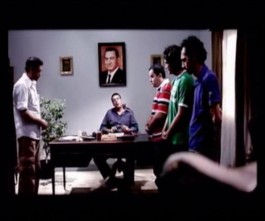
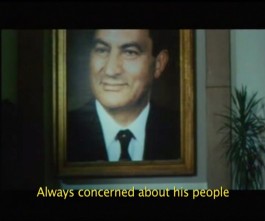
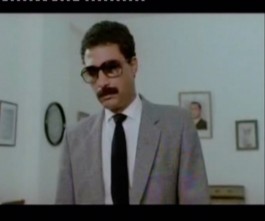
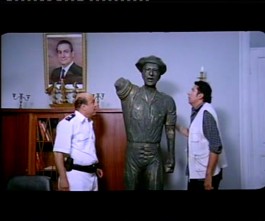
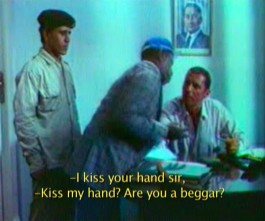
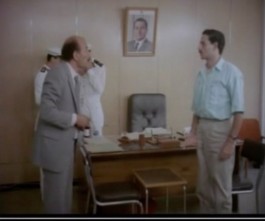
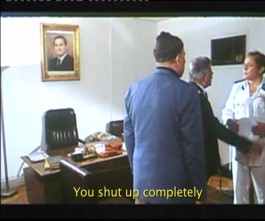
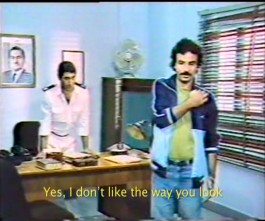
The New Film, Video excerpt
The New Film, Video still
The New Film, Video still
The New Film, Video still
The New Film, Video still
The New Film, Video still
The New Film, Video still
The New Film, Video still
The New Film, Video still
The New Film, Video still
The New Film, Video still
The New Film, Video still
Back to Top